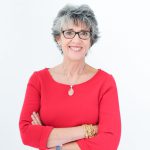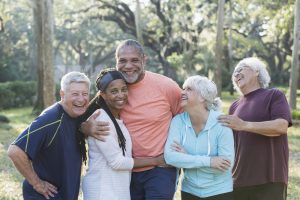The Value of Prevention Does Not End at 65
Posted on by Robyn Stone, DrPH
Robyn Stone, DrPH
Senior Vice President of Research, LeadingAge and Co-Director, LeadingAge LTSS Center @UMass Boston
Medical science deserves hearty congratulations for extending the lifespan of Americans to 80 years and beyond. This is truly an impressive feat, considering that most babies born in 1900 did not live past the age of 50.
I rejoice in my own longevity, as I’m sure you do. But I also wonder whether the same health care system that gave me these extra years is doing its best to help me make sure those years are healthy ones.
Frankly, I have my doubts.
Once we reach 65, our society begins sending us some pretty dangerous subliminal messages. Those messages tell us that by the time we’re “elderly,” it’s really too late to do anything to keep ourselves healthy. The impact of mistakes we made in our early years—maybe we ate too many saturated fats or sat in the sun too long—can’t be reversed or forestalled.
Changing the Message on Prevention
Fortunately, that thinking is changing, but not enough. We now know, for example, that exercise, even if started later in life, can help preserve our physical and cognitive well-being. But our nation still falls short when it comes to promoting cancer-prevention strategies in later life, even though over two-thirds of all new cancers are diagnosed among people aged 60 and older.
Clearly, we’re still missing many opportunities to save lives.
Developing a 65+ Prevention Initiative

I was reassured recently when The Gerontologist journal offered a great overview of the many opportunities we have to promote cancer prevention during older adulthood. The supplemental issue, sponsored by the Centers for Disease Control and Prevention, is an insightful resource for any health care clinician or public health professional who wants to learn more about this evolving and important area of research and practice.
The supplement sparked my own thinking about how we might go about developing a national prevention initiative for the 65+ population that would span a variety of diseases, including cancer.
First, we need to mobilize community-based organizations, such as local public health agencies, faith-based groups, local businesses, health clinicians, social service providers, and affordable senior housing communities, to promote prevention strategies among older adults and connect those adults with the resources they need to stay healthy.
Second, we need to study the environmental, social, and financial risk factors that cause disease, and then work in cities and towns around the nation to minimize those risk factors.
Most important, we need to launch a national movement to fight the ageist assumption that the value of prevention expires at age 65. That means making affordable health screenings, and ongoing primary care, available to all older adults, while promoting the value of regular exercise, good nutrition, and stress management.
In short, we need to use every means possible to give older adults myriad opportunities to remain healthy for as long as possible.
Make no mistake about it. Eventually—and inevitably—every one of us will benefit from those opportunities.
2 comments on “The Value of Prevention Does Not End at 65”
Comments listed below are posted by individuals not associated with CDC, unless otherwise stated. These comments do not represent the official views of CDC, and CDC does not guarantee that any information posted by individuals on this site is correct, and disclaims any liability for any loss or damage resulting from reliance on any such information. Read more about our comment policy ».
I guess to me the fact of the matter is that everyone (even the yourger people ages 25-45) will get old its a fact. I am 60 and feel like I am 20, so when Ifinally realized that I was being treated differently because of my age it upset me. It should not be this way. Yes aging happens to our bodies but our minds are still as young and we are human beings. Everyone deserves to be treated equally especially in medicine. (and I am a nurse)
I worked in hospitals and my colleagues one day said ( about a patient)
Well she is 60 !!!
I was 65 but I never told any of my colleagues!!
They were always telling me to do more training!!!
I use to laugh to myself ,,
So I realised never tell them your age unless you have to because straight away it triggers ageism 😞